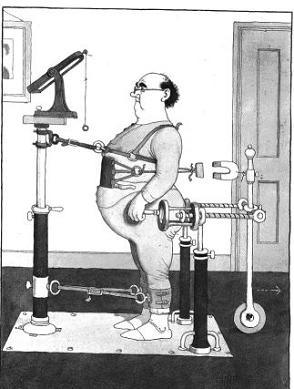
By Kevin Mitchelson
What is it exactly that investment managers do?
It is a question you might find yourself asking in relation to KiwiSaver these days with account sizes quickly growing in value.
Every KiwiSaver fund has something called an investment manager. These are the people that actually make the decisions about what to invest in (subject to limitations contained in the investment statement) and when to buy and sell. But what does the term investment management actually mean?
This is the first of a six-part series that will look at different aspects of investment management in an attempt to demystify it.
One of the simplest ways to look at it is by way a number of comparisons, the first of which is today's topic.
- Absolute return or benchmarking
- Active versus passive
- Intermission
- External versus internal
- Single sector or multi sector
- Timing versus selection
- Top down or bottom up
And no, the last one isn't from the Kama Sutra.
Absolute return versus benchmarking
You might think that the commonest approach to investment management is to make the highest return possible. You would be wrong.
Like any competitive industry, investment management suffers from what you might call herd mentality. It is dangerous to stand out from the crowd - ask any zebra or wildebeest. OK, you might do well but the risk is that you will blow up and lose everything.
So investment managers invented a thing called "benchmarking". Take NZ equities for example.
The commonest benchmark for NZ equities is the NZ 50 Gross Index. What investment managers will try to do is to beat the benchmark but not by too much, because that will run the risk of doing a lot worse that the benchmark.
What we find is that the performance of benchmarking managers tends to cluster over time around the benchmark, which is not all that surprising for a couple of reasons. The ones who do much worse tend to lose their funds and go out of business. Since investment managers tend to dominate the market and, unless they have a crystal ball, they will be winners some of the time and losers some of the time. So they all end up in a clump. Just like zebras or gnus.
As you would expect the clump is tighter for an asset that doesn't vary in value much, like cash, as opposed to one that does like equities.
Benchmarking for a fund that can only invest in one type of asset like NZ equities is relatively simple. For multi-sector funds (i.e those that can invest in a number of different types of asset) managers will construct a composite benchmark which means that different managers can have different benchmarks.
Before the industry discovered the benefits (to them) of going around in a herd, investment managers were judged by how much they actually made, not how much better or worse they did by some index.
Absolute return managers aim to make a defined return like 10% per annum. They typically have a lot more freedom in how they invest and they do their best to stand out from the crowd. Nowadays they tend to be called hedge fund managers because that sounds mysterious and allows them to charge performance fees like wounded bulls. The ability to borrow is also fairly common as it gives them the opportunity to leverage the return on the assets.
One KiwiSaver scheme that adopts an absolute return approach is the NZ Funds KiwiSaver Scheme. They don't have a performance fee but they give the money to other managers to manage (we will look at this at a later date) and in the investment statement they say this:
The Portfolios may also invest into other collective investment vehicles which may charge fees including entry fees, exit fees and management fees. If charged, these fees and expenses may affect the unit price of the relevant Portfolio. Details of any such fees or expenses charged can be obtained at any time by contacting the Manager.
This means that if the actual managers earn performance fees, they will show up as changes in the value of the fund and not as explicit fees.
So what are the implications for choosing a KiwiSaver fund?
Well, first up, and this is only a personal opinion, as long as you choose a reputable manager with some time under their belt and they are managing to a benchmark, then over the long term (20 to 30 years) the returns will not vary a huge deal between managers. Secondly, ask about the benchmark and how closely they manage to it. And lastly, if you like the sound of going for absolute return, make sure you ask exactly how they intend to generate the returns.
In our next installment on investment management, active versus passive, we will ask the question: "Why pay big fees if benchmarking managers end up investing very similarly?"
We welcome your comments below. If you are not already registered, please register to comment
Remember we welcome robust, respectful and insightful debate. We don't welcome abusive or defamatory comments and will de-register those repeatedly making such comments. Our current comment policy is here.